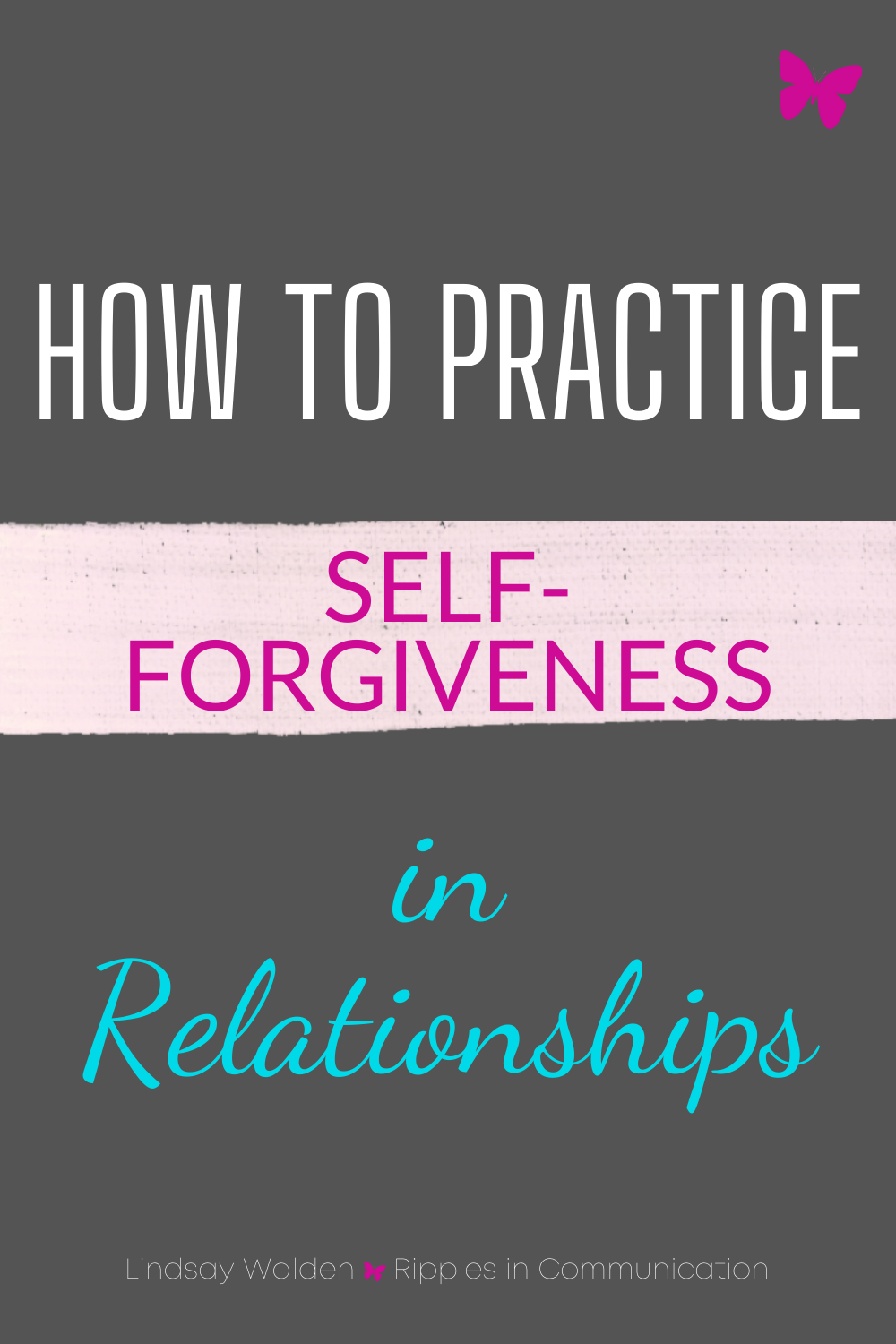How to Embrace Self-Forgiveness in Relationships
Embarking on self-forgiveness within relationships marks a pivotal step towards both personal development and emotional wellness. At the heart of many communication issues and intimacy barriers lie past traumas that mold our reactions and choices. We often construct an internal scorecard, meticulously noting each perceived misstep or failing within our connections. This relentless tallying not only hampers our self-love but erodes the foundation for honest conversations crucial to thriving relationships.
Understanding the significance of self-compassion emerges as a landmark realization in this journey. By acknowledging our propensity for guilt and shame, we begin to see the transformative power of treating ourselves with the same kindness we'd offer a loved one. It's a pathway that doesn't just lead us towards better mental health and self-acceptance; it fundamentally alters how we engage in interpersonal communication, fostering a more supportive and understanding dynamic.
Have you gotten my FREE Relationship Communication Guide yet? Start building an authentic, conscious, and thriving relationship with your partner TODAY. Say goodbye to misunderstandings, conflicts, and missed opportunities for a deeper connection. These are the same tips and practical advice I give to my clients every day. With this guide, you'll be equipped to navigate any communication challenge and build a strong and fulfilling bond with your partner. Click the button below to enter your email address and I will send the guide to your inbox right away!
Key Takeaways:
Self-forgiveness is essential for personal growth and improving relationships.
Addressing the internal scorecard is pivotal in overcoming guilt, shame, and enhancing self-love.
Embracing self-compassion fosters improved communication, intimacy, and overall emotional wellness.
Understanding Your Inner Scorecard
We all carry an invisible ledger within us, meticulously tallying our flaws, mishaps, and every perceived failure in our relationships. This 'scorecard' often becomes the lens through which we view ourselves, casting a long shadow over our self-worth and hampering the intimacy we seek. Recognizing this internal scorecard requires us to confront its existence head-on.
Consider for a moment the actual weight of these entries. Are they truly errors warranting such harsh self-judgment, or reflections of deeper communication issues, past traumas, or simply the human condition? By understanding the origins of this relentless self-scrutiny, we unlock the door to self-compassion.
I urge you to ask yourself: Would I judge a loved one's actions with the same severity? Often, we find ourselves trapped in a cycle of guilt and shame, struggling for self-acceptance and forgiveness, overlooking our inherent need for personal growth, self-care, and emotional healing. The journey towards self-love and mental health begins with dismantling this scorecard.
I've learned that practicing self-forgiveness is key to nurturing love and understanding in my relationships. Dive into my journey and discover how self-forgiveness can revolutionize the way you connect with others.
The Power of Self-Compassion and Embracing Self-Forgiveness in Relationships
Many of us wrestle with feelings of guilt and shame, especially when we perceive ourselves as falling short in our relationships. We meticulously maintain a mental ledger of every mistake, often being our harshest critic. I have walked down this road, ruminating over every perceived error, allowing it to define my sense of self. Yet, the journey taught me the indispensable value of self-compassion. Self-compassion invites us to step back and extend to ourselves the same kindness and understanding we would readily offer a friend in distress. Just as interpersonal communication is vital in nurturing healthy relationships, so is the dialogue we engage in with ourselves. Emphasizing self-care and self-love, I encourage you to gently acknowledge your mistakes not as insurmountable failures but as steps in your ongoing path of personal development and emotional wellness. Embrace self-forgiveness as a courageous act—not only does it pave the way for healing, but it also strengthens our capacity for honest conversations and deepens our connections with others. Remember, you are not alone in this journey, and every step towards self-compassion is a step towards a healthier, more loving relationship with yourself and those around you.
Evaluating the Weight of Your Scorecard
I often find myself contemplating the myriad of errors I perceive I've committed in my relationships. This relentless internal scorecard can feel overwhelming. Yet, it's crucial to ask ourselves a few profound questions about these so-called errors. Is the weight I've given to each mistake truly justified? More often than not, many of us tend to amplify our faults, ignoring the context and complexities of situations.
Another critical inquiry involves our tendency to dwell on past transgressions. Am I allowing these past errors to dictate my current state and future possibilities? Letting go of this burden will undoubtedly pave the way for more fulfilling interpersonal communication and a healthier mental state. It's about time we learn from our past, aiming for personal development rather than anchoring ourselves in guilt and shame.
Ultimately, embracing self-compassion and understanding the essence of personal growth lie at the heart of navigating through these tough inquiries. It’s within this framework of self-love and emotional healing that one can truly start forgiving oneself, fostering emotional wellness, and nurturing healthier relationships.
Learning from the Past, Moving Towards the Future
Our journey through life has taught us invaluable lessons. Particularly, the realm of relationships becomes a fertile ground for personal development and emotional wellness. I've observed that self-forgiveness emerges as a critical yet often overlooked aspect of mental health. Acknowledging our past traumas and communication issues is crucial; it paves the way for healing and interpersonal communication improvement.
In embracing our imperfections, we unlock a powerful form of self-care and self-love. The act of forgiving ourselves, especially within the contexts of guilt and shame, requires us to confront these feelings head-on. It demands a shift in perspective - from seeing errors as insurmountable obstacles to viewing them as stepping stones towards personal growth and self-acceptance. This process isn't just about letting go; it's about redefining our stories with a narrative of strength and resilience.
As a therapist deeply immersed in couples therapy and helping individuals navigate the intricacies of intimacy and relationship advice, I've come to appreciate the transformative power of honest conversations with ourselves. Self-forgiveness isn't the end of the journey but the beginning of a deeper exploration into our capacities for love, both for ourselves and for others. Engaging in this practice of emotional healing, then, becomes a cornerstone for building a future where our relationships thrive on the foundation of genuine understanding and compassion.
Learning to treat myself with compassion changed everything about how I communicate and connect. Dive into my story and see how self-compassion can revolutionize your relationships too.
Forgiving Yourself Through Written Reflection
In our journey toward self-compassion and self-forgiveness, I've found an incredibly impactful practice: writing letters to past versions of ourselves. This exercise allows you to extend the same understanding and kindness to yourself that you'd easily offer someone else. It's about recognizing that everyone has moments of guilt, shame, and perceived failures, especially within the context of our relationships. Think of this letter as a bridge across time, connecting you with a version of you that was doing the best they could under the circumstances.
To embark on this reflective journey, start by choosing a moment in your relationship that you often associate with regret or self-blame. Picture the you from that time; try to remember what you felt, thought, and believed. As you write, let compassion lead your pen. Acknowledge your growth since that moment, applauding the personal development and emotional wellness you've worked so hard to achieve. This isn't just an exercise in forgiveness—it's a profound step toward embracing your imperfections and allowing yourself to heal.
Embracing Imperfection
In the quest for self-forgiveness and emotional healing, understanding that perfection is a myth has been crucial for many. For years, the burden of guilt and shame might have overshadowed the journey of personal growth and self-love. Yet, the moment one realizes that imperfection is not a flaw but a fundamental aspect of the human condition, a significant shift occurs. Embracing our mistakes becomes a powerful form of self-care and a step towards mental health. This acceptance paves the way not only for personal development but also for enhanced intimacy and better communication in relationships. Accepting that we are work in progress allows for more honest conversations and a deeper connection with others. It's liberating to let go of the unrealistic expectations set by ourselves or society. In doing so, we embrace our true selves, fostering a healthier environment for emotional wellness and thriving interpersonal communication.
The Path Forward
I understand the weight of holding onto guilt and shame, having navigated the tumultuous terrain of self-forgiveness myself. Throughout my journey as a therapist specializing in communication issues, past traumas, intimacy, and honest conversations, I've seen the transformative power of self-compassion and emotional healing. It's a cornerstone for personal growth, self-care, self-love, and overall mental health. Emotional wellness isn't just a buzzword; it's essential for thriving interpersonal communication and relationships.
Forgiving ourselves, I've learned, involves more than a simple decision. It's a process that encompasses recognizing our emotional wounds, extending compassion towards our imperfections, and ultimately, finding peace in our personal development. This path, although challenging, is saturated with opportunities for learning and growth, leading to profound emotional wellness. By practicing self-help techniques and possibly seeking couples therapy or relationship advice, you can forge a stronger connection with yourself and those around you.
The journey ahead demands courage, honesty, and a willingness to embrace our inherent human imperfection. Remember, self-acceptance liberates us from the chains of our perceived relationship 'failures.' As we move forward, let us do so with a gentle understanding and kindness, both towards ourselves and others. This act of self-forgiveness is not just an act of personal healing but a pivotal step towards cultivating a healthier, more intimate, and fulfilling relationship.
Embark on a journey of self-forgiveness and healing with these empowering daily affirmations. Discover how embracing kindness and compassion towards yourself can transform your relationships and bring you closer to the peace and love you deserve.







